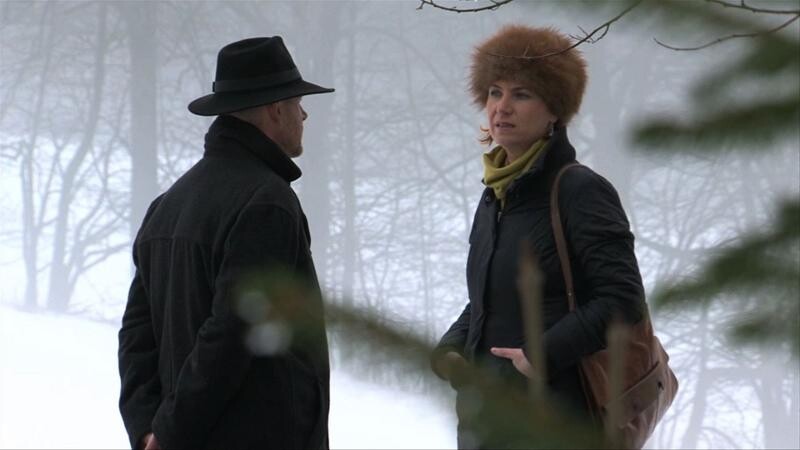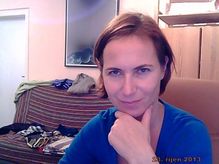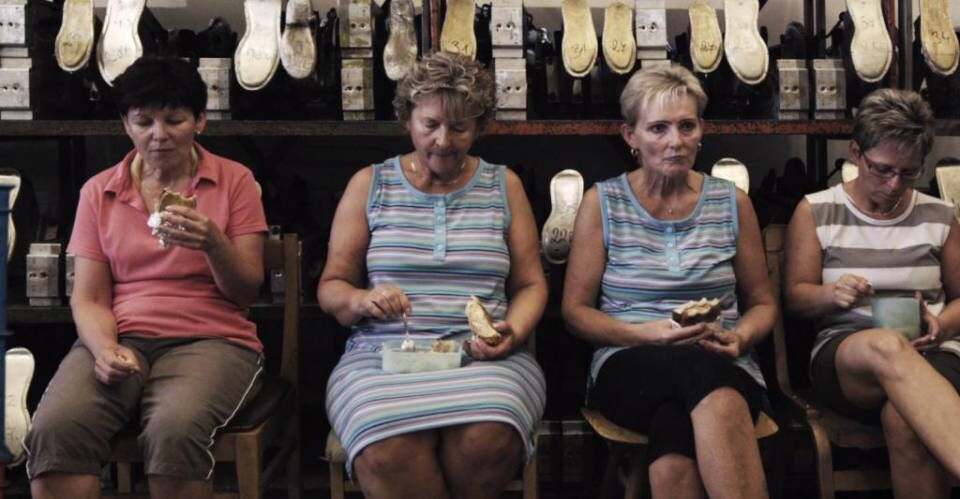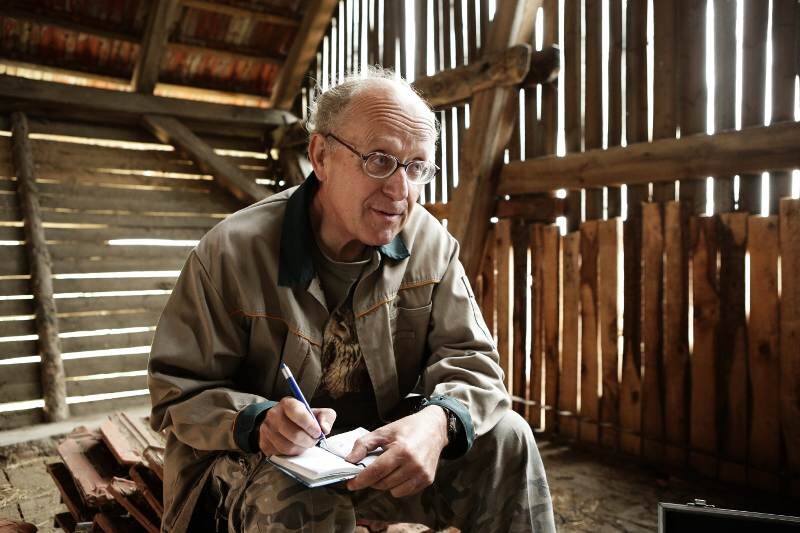Against the Grain
The film Pavel Wonka Commits to Cooperate opened a public discussion in the Czech Republic even before its premiere. In it Libuše Rudinská is looking for clues about the life of Pavel Wonka, the last political prisoner who died before the revolution in a communist prison. At the same time, she reveals, that this story has unexpected twists and the legacy of Pavel Wonka is not as clear as previously thought.
You studied photography at FAMU. What was your journey to documentary film like?
While studying, I concentrated mainly on documentary photography and I thought that I’d stick to it. I was fascinated with Russia. During the 90’s, the Yeltsin period, when Russia was opening up to the world and was exotic, I travelled there and wanted to live and work there for some time. That is why I sought out Jaromír Štětina, who had an agency in Russia. At the time it was forbidden for him to travel to Russia, but he made me an offer to travel with him to Africa. Originally I was supposed to take pictures in Africa, but he had other plans for me. Little by little, he began nudging me towards working with the camera. That is how I went from photography to filming.
So you stayed with filming and tackled other topics. How did you make your way from ethnic to political documentaries?
I was always involved with the concrete character of Štetina’s documentaries. I enjoyed it, unlike photography documentary film is a very lively medium, and it is more about communication with people, learning. When Štetina’s and my path separated, he ventured into politics and I left for America, I decided to stay with documentaries. I allowed topics to come to me – filming became a way for me to get to know something that intrigued me.
How did Wonka come to you?
In the past, I was always surprised how he was talked about as someone unknown, unexplained. It was said that he was a hero, but everyone was always flustered when the claim was made. I wanted to know where their hesitation stemmed from. What was really behind his death? Gradually, I became interested in the topic.
What kind of a response do you expect after the premiere?
I expect attacks from several sides. The first is the brother of Pavel Wonka, Jiří, who has threatened me with court and blames me for the fact that he receives threatening phone calls. He was able to hold a knife to the throat of a fourteen thousand resident town, Vrchlabí for 25 years. The locals have personal experiences with Pavel Wonka, which are not entirely good, but no one admits to them out loud, because Jiří aggressively bares his teeth at them, sends threatening letters, and files complaints. In order to have peace from him, they are quiet.
What other parties could react negatively?
Former dissidents. The revelation of Pavel Wonka is very uncomfortable for them. They themselves were involved in creating a cult following around his person; specifically they enabled Jiří Wonka to do so. When Wonka died in prison, his unprecedented, unnecessary and unjust death became a symbol of resistance against communism, a symbol of injustice. These people gathered at the funeral, which became a demonstration against the regime. There Václav Malý talked about how selfless Pavel Wonka was, how he helped people. Václav Havel wrote a similar speech and it was read by Václav Devátý. They honestly believed it. The discovery that the contrary is true that he was a man who abused the repressive forces to scare his neighbours, tried to use the situation to his advantage, is something that overturns his character and casts a shadow on them. They are not willing to admit that we all are fallible and that they themselves could have been the victims of a mistake.
Can you think of anyone else who could rush in with a critical reaction?
The Institute for the Study of Totalitarian Regimes. They are one of the few who have complete access to archives and they are reluctant to let in members of the public. I had research done and found the corresponding material. Until now they were the exclusive interpreters of history and now they are confronted with a different point of view.
How did you go about searching for people to testify?
Jiří Wonka earnestly recommended his neighbours and friends from Vrchlabí. The documentary took three years to make, so I got to know a number of them. They cooperated with me even when Jiří Wonka began to stand up against the concept of my film. Then I got some contacts from the records. Often their names and addresses were given there so I started to make my way around.
Were they willing to testify?
Often times not. The general response was: “Leave me alone, I don’t want to have anything to do with Wonka.” Only after I hinted what I know about Wonka, they began to give in without any hesitation or feeling of being judged. The biggest problem was with former members of the secret police (StB) and prison service. No one from the prison service wanted to talk to me voluntarily.
Would you like to continue with a similar line of documentary film in the future?
Definitely. It is a great adventure and a calling in a certain way. Three years of working like crazy, no money and becoming a scapegoat. But that is the lot of filmmakers. Going with the grain is easy, anyone can do that.
|
|
Libuše Rudinská (1974) studied the photography programme at FAMU and filmed ethnic documentaries with Jaromír Štětina – especially in countries of the Middle East and Africa. In the year 2002 she received the Fulbright scholarship and attended a yearlong study stay in the United States at San Francisco State University. She studied visual anthropology and digital technology. Upon her return, she began making documentaries of her own production and externally cooperating with the Czech Television. |
This interview was published full-length in Czech in the Jihlava IDFF newspapers, dok.revue F02.
Translated by Floriana Skorulska




